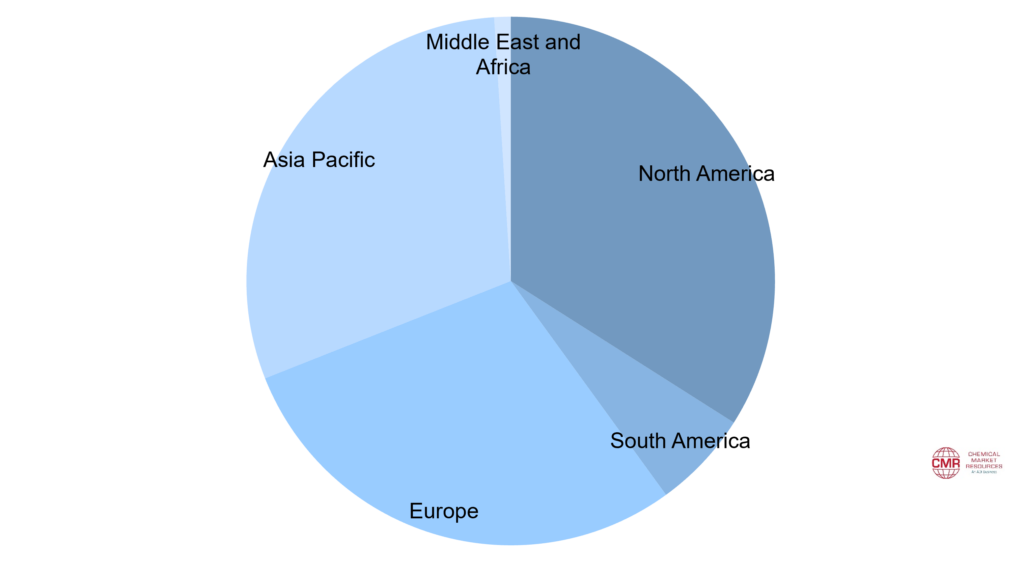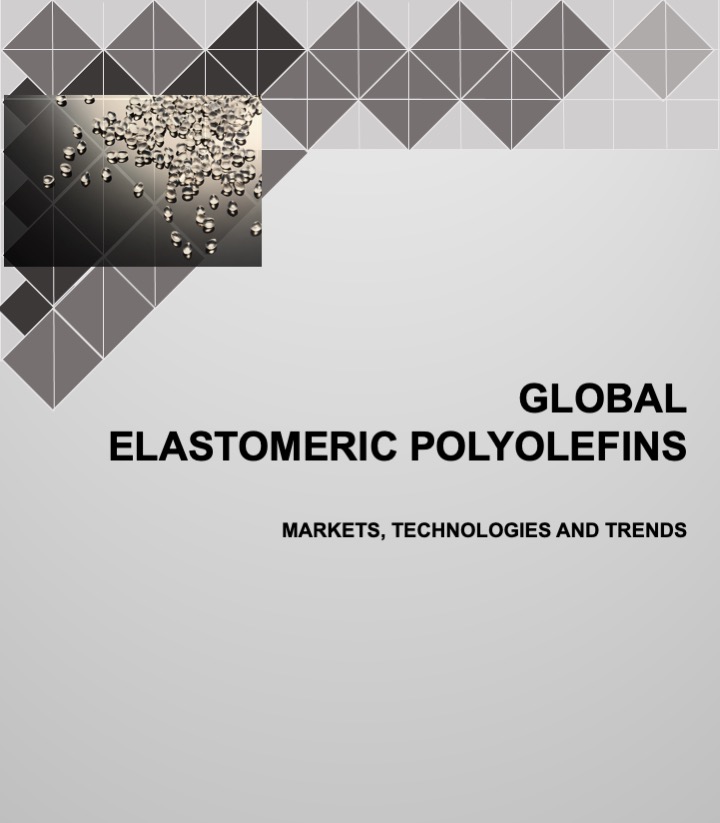Elastomeric Polyolefin Technologies
Elastomeric polyolefin technologies include several categories of thermoplastic elastomers (TPEs), which are thermoplastics with rubber-like properties that provide flexibility and impact strength. A significant category is thermoplastic polyolefin elastomers (TPE-O), more often called thermoplastic polyolefins (TPOs). Conventional TPOs are two-phase, physical blends or compounds of polypropylene (PP) with an elastomeric phase (EPDM or an elastomer) that is more than 20% by weight. A newer category is reactor-made TPOs (R-TPOs). Another category of TPEs considered in this report is thermoplastic vulcanizates (TPVs), which are alloys of EPDM rubber particles in a PP matrix. Ethylene-based polyolefin elastomers (POEs) and plastomers (POPs) and propylene-based plastomers can also be categorized as TPEs. POEs and POPs can be used as the elastomeric phase in a conventional TPO. POPs and POEs are made using single-site metallocene catalysts, which came into commercial use for making polyolefin resins in the late 1990s. ADI-CMR’s report on ethylene-based POEs and POPs focuses on these resins specifically, and ADI-CMR’s report on polyolefin catalysts describes the catalyst technologies in more detail. TPOs have flexural modulus ranging from 1500 to 300,000 psi. TPOs from 1500 to 50,000 psi flex modulus are considered “Soft TPOs”.
Market Drivers in the Global Elastomeric Polyolefin Market
The major end-use markets for TPOs include automotive, molded goods, roofing membranes, wire and cable, hoses and tubing, medical applications, and others. In automotive applications, TPOs have gained increasing acceptance over other competing materials because of the global trend towards homogenization of materials usage in automotive interior and exterior applications. POEs are primarily used in the automotive industry as a component of TPOs. POEs are also used in foam (eg, for footwear), wire and cable jacketing, industrial and construction applications, and medical applications. POEs compete with EPDM, LDPE, EVA, and flexible PVC. POPs are used for packaging, with many approved for food packaging, such as meat and cheese packaging or stand-up-pouches. POPs compete against ionomers, EVA, and LLDPE. POPs are also used for stretch and shrink films, in wire and cable, and as polymer modifiers. POEs are increasingly used to make hot-melt adhesives (HMAs) and encapsulants for solar panels. Growth in these resins is driven by new application development and by growth in emerging regions for film packaging and automotive markets. Exhibit below is an illustrative chart showing global TPO demand by region.

Exhibit 1. Global thermoplastic polyolefin elastomers demand by region in percentage
Global Elastomeric Polyolefin Market Assessment
ADI Chemical Market Resources (ADI CMR), with extensive experience in these technologies, has conducted a strategic analysis that covers all major developments in the industry including a comprehensive analysis of supply-demand balance, status of technology availability, and strategic partnerships. It also gives extensive coverage on emerging players and challenges. Our in-depth examination and methodology are designed to assist companies in monitoring the rapid developments, analyzing the trends, and capitalizing on the many opportunities in these changing markets and technologies. The report is based on thorough analysis of the industry through a wide range of methods, including published information, patent searches, ADI CMR proprietary projects, and interviews with leading TPO, TPV, and plastomer/elastomer suppliers and distributors, as well as interviews with major compounders and end users of elastomeric polyolefins to understand their current and unmet needs. The manufacturing cost economics based on our extensive cost databases and interviews. The report will particularly benefit present and future elastomeric polyolefins market participants; polyolefin and elastomers producers, compounders, and end users; other polyolefin industry participants; and individual end-users, entrepreneurs, and organizations attempting to understand these complex issues and capture future growth in the marketplace.
Table of Contents
Click here to view the table of contents for this report.
Prospectus
Please fill this form and check your email for a link to download the prospectus. For a custom report on a topic of your choice or an updated version of an existing report, please contact us at +1 (281) 506-8234 or info@adi-cmr.com.


